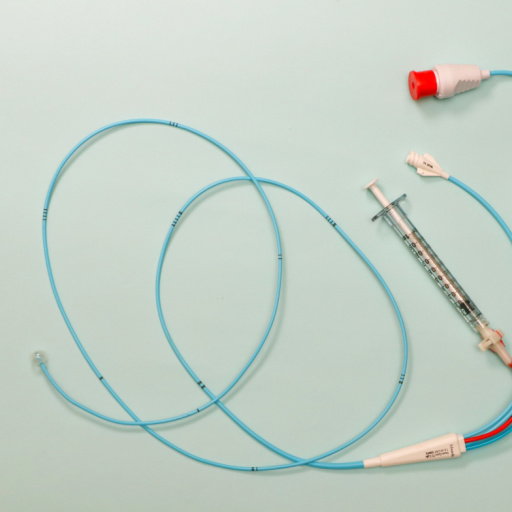Daily, your heart pumps nearly 2000 gallons of blood, transferring oxygen and vital nutrients to all the body parts, making it an enormous task. So, the easier you make it for your heart to do its job, the better it is for you. All that is required is not overdoing or overstressing for the sake of your heart’s health.
What you need to know:
- Understanding the importance of heart health
- The dangers of overdoing it for the sake of heart health
Understanding the importance of heart health

On average, the body contains nearly five liters of blood, passing through the heart every minute. So, when you exercise, your heart pumps up to four times that amount per minute. Often, people go to extremes to achieve a fitness or lifestyle goal by over-exercising than their body can permit, radical fasting or excessive usage of medications. All of this can have an adverse effect on the heart.
In order to live a heart-healthy life, you need to make wise health choices, understand the risks and take steps (not excessive) to reduce cardiovascular diseases.
The dangers of overdoing it for the sake of heart health

Your overall good health depends on your heart health. It is the centre of our cardiovascular system, responsible for almost all essential bodily functions – from transporting oxygen to an improved immune system. Here are some symptoms of an unhealthy heart:
- Shortness of breath after any activity
- Fatigue and weakness
- Swelling at the feet, ankles and legs
- Rapid or irregular heartbeat
- Wheezing
- A cough that doesn’t go away
- Swelling on the belly
- Rapid weight gain due to fluid build-up
- Nausea
- Lack of appetite
- Difficulty concentrating
Over-exercising
In a study, researchers found that people who over-exercised well for many years were in danger of developing coronary artery calcification by middle age. After all, extreme, long-term endurance exercise equally demands extreme stress on the cardiovascular system. Strength training and lifting weights more than your body can handle directly impact your heart, leading to attacks. Staying active is a great initiative, but always be mindful of your physical limits. If you feel uneasy during any exercise, stop doing it immediately. Do not strain yourself and perform it only if you feel comfortable. If you have any pre-existing health conditions, consult a medical expert before working out.
Extreme dieting
Everyone would like to have the perfect body shape, but going about extreme dieting without receiving the proper nutrients would cause a drop in magnesium and potassium levels, which could lead to abnormal heart rhythms. Ensure to have a balanced diet containing fruits, vegetables, whole grains, good protein, and unsaturated fats. Avoid excessive consumption of red meat, fried and sugary foods as it can lead to plaque build-up in the arteries.
Excessive use of supplements
Research has shown that excessive supplement consumption of specific vitamins, like calcium and Vitamin D, can harm your cardiovascular health.
Overuse of medications
When you overuse medications, their toxic effects can result in cell death, high or low blood pressure, increased blood clots, reduced muscle cell contractions, and changes in heart rate. Consume medications only after consulting a medical professional.
Extreme weight loss methods
It is important to remember that weight management is a slow and conscious process. So when you start losing weight rapidly, consult your doctor as it is not a good sign for your heart, causing low blood pressure, dehydration, increasing the risk of heart failure, electrolyte imbalance leading to arrhythmia, and in some cases, even sudden cardiac arrest
Psychological stress
Constant psychological stress on the body can lead to high blood pressure. This can pose a higher risk for heart attack and stroke. It can also contribute to other heart disease risks like overeating, smoking and lack of physical activity.
It is great to prioritize your health, but anything done in excess can have adverse effects on your health and, more importantly, your heart. So go about living moderately to enjoy life.
Stay tuned to the Activ Living Community. Keep up to date with the latest health tips and trends through expert videos, podcasts, articles, and much more in nutrition, fitness, mindfulness, and lifestyle conditions like Asthma, Blood Pressure, Cholesterol, and Diabetes.
You may also be interested in the following blogs:
- Surviving a Heart Attack: Things To Do When You Are Back On Your Feet
- Top 4 Benefits Of Beta-Blockers For Heart Health
Popular Searches
How to lower blood pressure | Fruits good for liver | Unhealthy foods | Ragi Benefits | Basal Metabolic Rate | Acupressure points for High Blood Pressure | Ayurvedic medicine for blood pressure | How to control cholesterol at home | Homeopathy for Asthma | Biological Age | Home remedies for TB | Natural beta blockers | Negative effects of internet | Types of walking | Blood pressure calculator | Blood sugar calculator | BMI Calculator





 1800-270-7000
1800-270-7000










